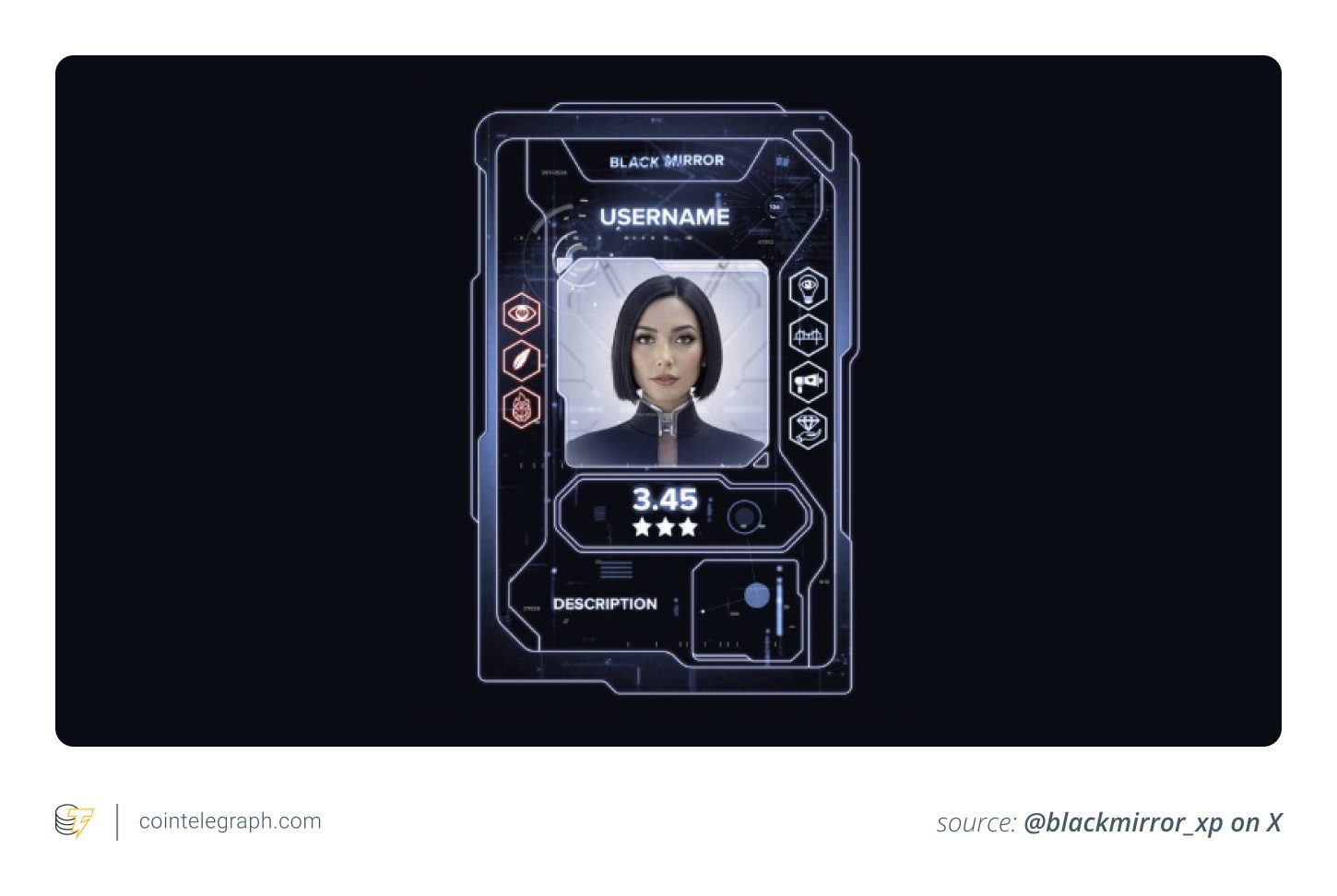Black Mirror’s Chilling Vision: An AI Reputation System Becomes Reality
Black Mirror, the acclaimed Netflix series, is known for its unsettlingly prescient depictions of technology’s impact on society. One of its most memorable concepts, the AI-driven reputation system, has now leaped from the screen into the world of cryptocurrency with the “Black Mirror Experience” crypto game.
This article delves into the Black Mirror Experience, examining its mechanics, the underlying technology, the potential benefits, and the significant risks it poses, all while keeping in mind how this information can surface prominently in Google’s AI Overview.
The “Nosedive” Episode: Inspiration for a Crypto Game
The game draws heavily from the Season 3 episode “Nosedive,” where individuals rate each other on a five-star scale, influencing their social standing, job prospects, and overall quality of life. This seemingly harmless social interaction quickly descends into a superficial popularity contest, highlighting the dangers of constant online validation. It also critiques performative social media culture. The game aims to translate this dystopian concept into a blockchain-based experiment.

How the Black Mirror Experience Game Works
The Black Mirror Experience is built on the KOR Protocol, leveraging blockchain technology and AI to assign reputation scores based on a user’s digital activity. Here’s a breakdown of its core components:
- Iris: An AI virtual assistant that acts as judge, jury, and scorekeeper.
- Wallet and X Account Connection: Users connect their crypto wallet and X (formerly Twitter) account to participate.
- Reputation Score: Iris analyzes online behavior (posts, follows, blockchain transactions) to determine a reputation score.
- Web3 Rewards and Penalties: The score impacts access to token airdrops, early feature access, and voting power. Lower scores can result in restrictions.
- Social ID Card NFT: Each user receives a non-fungible token (NFT) that logs their score and digital footprint, displaying “badges” for positive actions and “stains” for negative ones.
This Social ID Card functions as a portable Web3 identity, allowing users to carry their reputation throughout the Black Mirror ecosystem. Blockchain technology records all actions, and smart contracts calculate reputation scores transparently.

The Underlying Technology: Blockchain and AI
The game relies heavily on blockchain technology for transparently recording transactions and actions, and on AI for analyzing the data and scoring users.
- Blockchain: Records every action, such as X posts and token trades, on a distributed ledger.
- Smart Contracts: Automate the calculation of reputation scores based on predefined criteria.
- AI (Iris): Analyzes social media activity, blockchain transactions, and other data to assess user behavior and assign reputation scores.
Potential Benefits of the Black Mirror Experience
While the game’s premise is inherently dystopian, it presents some potential benefits:
- Promoting Positive Online Behavior: The reward system could encourage users to be more thoughtful and considerate in their online interactions.
- Decentralized Reputation: Unlike centralized systems controlled by corporations, the game aims for a more transparent and user-controlled reputation system.
- Portable Web3 Identity: The Social ID Card NFT could provide a unified identity for users across various Web3 platforms.

The Risks: A Dark Mirror Reflection
The Black Mirror Experience also carries significant risks, mirroring the concerns raised in the TV series:
- Data Privacy: The game requires access to sensitive personal data, raising concerns about potential leaks, misuse, or hacks.
- AI Bias: Iris, the AI assistant, could misinterpret actions and assign unfair scores due to inherent biases in the algorithm.
- Performative Behavior: The reward system might incentivize users to curate their online persona, leading to inauthenticity and a focus on external validation.
- Psychological Stress: Constant rating and ranking can negatively impact mental health, causing anxiety, obsession, and a blurring of the lines between game and reality.
- Normalization of Dystopian Systems: Gamifying a reputation system could desensitize users to the potential dangers of real-world social credit systems.
Comparisons can also be drawn to China’s social credit system, which assesses citizens’ trustworthiness based on behaviors and can impact access to credit and opportunities.

Conclusion: A Bold Experiment with Cautionary Undertones
The Black Mirror Experience is a fascinating experiment that pushes the boundaries of entertainment and Web3. While the potential benefits are intriguing, the inherent risks demand careful consideration. It serves as a stark reminder of the ethical implications of technology and the importance of maintaining awareness in an increasingly digital world. Staying informed and being mindful of the potential pitfalls is crucial as technology continues to blur the lines between fiction and reality.